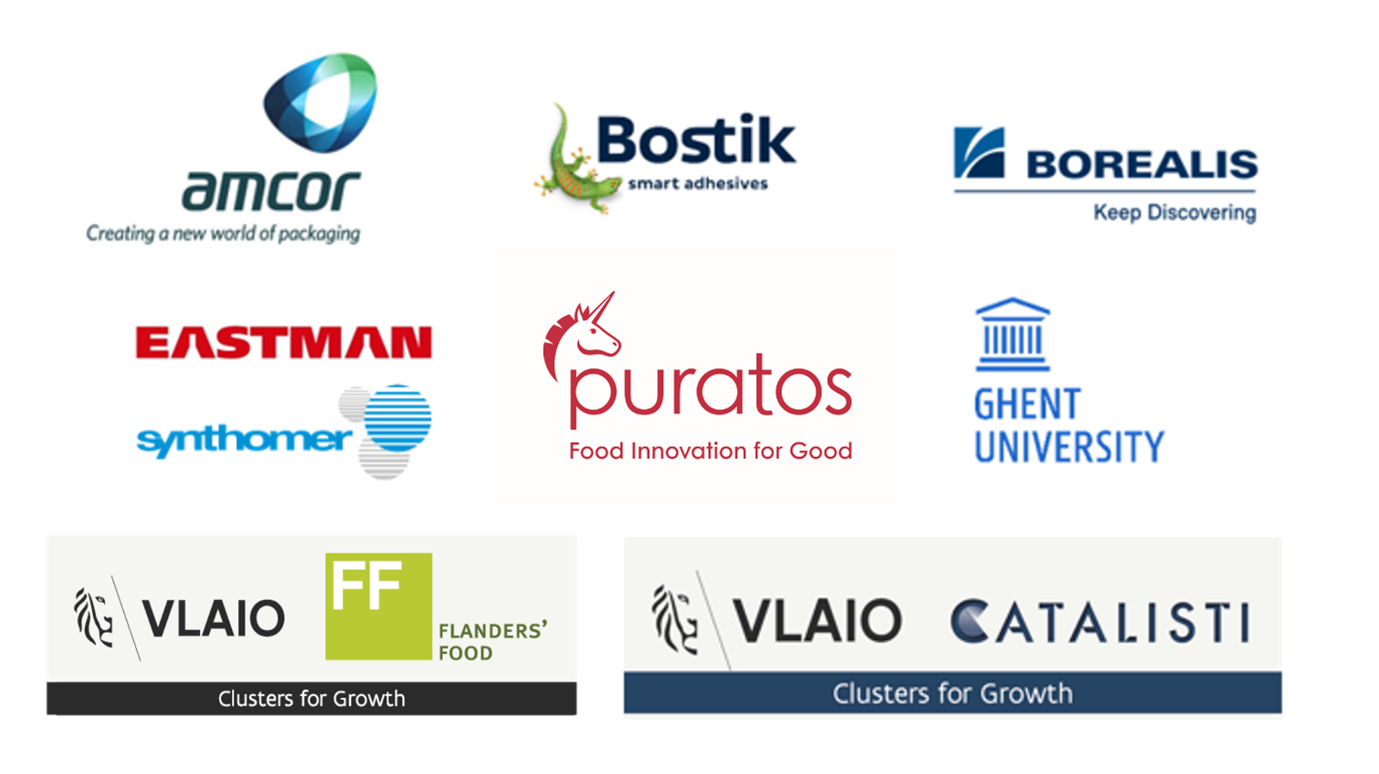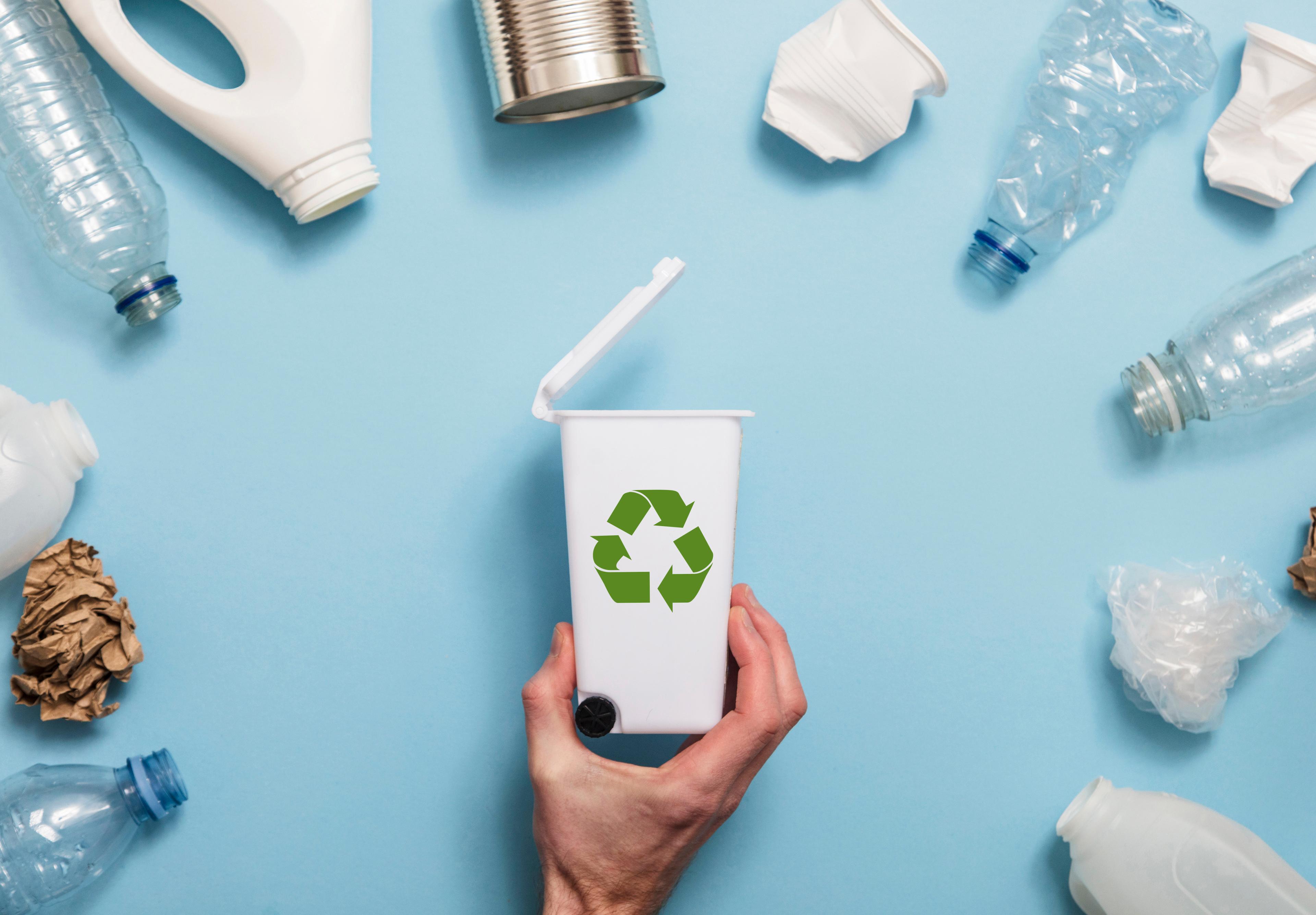Innovative players from the packaging value chain joined forces in the TRUCE project to develop new and more sustainable building blocks for functional and flexible packaging. Thanks to the development of a new protocol to assess recyclability and end-of-life of food packaging, the project partners took an important step towards a circular economy.
In January 2021, the Flemish spearhead clusters Catalisti and Flanders' FOOD launched the cooperative inter-cluster project TRUCE (“True Recycling Upscaling of Flexible Packaging in the Plastic Circular Economy”). This R&D business project, in which several companies from different sectors work together to achieve a common goal, had a duration of 33 months and was financed by VLAIO and had a total budget of 2.15 million euros. The food company Puratos joined forces with innovative players from the packaging value chain, in particular Amcor, Borealis, Bostik and Eastman/Synthomer, and with Ghent University (Dpt. Green Chemistry and Technology) as a knowledge partner.
The primary goal of the TRUCE project was to develop new building blocks for functional, flexible packaging solutions, which can be combined into fully recyclable monopolyethylene (PE) structures (> 95% PE). The different project partners utilised their own specific area of expertise: Amcor focused on the extrusion, lamination and printability of the newly developed packaging layers, Borealis on the development of adapted PE grades, Synthomer on the further development of specific additives to fulfill various functionalities of these PE layers, Bostik on lamination adhesives enabling high quality recyclability and Ghent University on recyclability testing, development of predictive models and a recycling protocol, and life cycle assessment (LCA). During the project, Puratos investigated the processability of the newly developed materials on industrial packaging lines, more specifically 'vertical form fill seal' lines in relation to the technical and barrier functionality of the new materials to protect their bakery, pastry, and chocolate products.
By bringing together the unique expertise of the various partners, the project resulted in innovative and unique insights for Puratos into the possibility of using recyclable packaging structures for specific high-barrier applications. Furthermore, the recyclability protocol allows to analyze the improved recyclability of the newly developed structures in state-of-the-art recycling facilities and to accelerate market implementation of recyclable structures.
The TRUCE project shows that collaboration between industrial partners throughout the entire value chain allows to take important steps towards a circular economy. Newly developed structures were tested on an industrial scale. At the same time, the functionality of the packaging was explored with regard to the shelf life of the packaged product.
An LCA was also carried out to measure the environmental impact of the newly developed monomaterial solutions compared to conventional, non-recyclable film compositions. A key finding is that the use of PE structures to substitute for other classic functional building blocks such as polyamide (PA) and polyethylene terephthalate (PET) already results in a high potential reduction in environmental burdens (approximately 25% reduction for the CO2 equivalent), regardless of whether the material is recycled or not. Moreover, this shift can gain an additional benefit regarding end-of-life treatment as, in the cases studied, mechanical recycling of mono-PE films is more environmentally sustainable than incineration with energy recovery for conventional films. The project partners took a significant leap ahead and are now much closer to a true recyclable high-barrier flexible packaging.
Once again, with the support of the spearhead clusters Catalisti and Flanders' FOOD and with the financial support of VLAIO, the forces of innovative players in the packaging value chain could be combined to achieve sustainable innovation!





